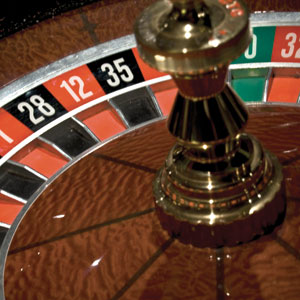
State lawmakers are gambling that casino revenues will help to jump-start a sluggish economy, but certain cautionary voices are publicly expressing their concerns that the numbers just don’t add up.
Somerville Pol:
‘It won’t work’
By Andrew Firestone
Sometimes if you double-down hard enough, you can beat the house, or so says the blackjack code. So goes the casino bill on Beacon Hill, which, after passing the house last Wednesday 123-32, will authorize three casinos, one slot parlor and one casino for the Wampanoag tribe in Massachusetts. While members of the Somerville delegation Rep. Carl Sciortino and Rep. Denise Provost voted against the measure, the bill now goes to the Senate, which approved the bill last year.
“What we’ve done is set up a system where we are going to benefit in theory through state revenue by setting up shop to get people addicted,” said Sciortino. “I think that is a really flawed way to raise revenue, that is a flawed way to create jobs. There are better alternatives for economic development and this is not a good option.”
Sciortino’s worries were echoed by Somerville Chamber of Commerce member George Donnelly, who is also editor of the Boston Business Journal.
“I think it’s a short-term strategy, but not a good long term economic policy,” he said.
The casino bill, championed by Speaker Robert DeLeo (D-Winthrop), is touted as a job-creator for the working class. Donnelly says that this simply does not work out in practice. He called the plan “short-sighted and driven by the union control of the legislature.”
“I think the politicians focus on the benefit that it will have for the union builders to build the different casinos and the jobs that will generate, and that certainly is a valid short-term stimulus. But in the long run, I don’t that is very smart economic policy, largely because casinos have a way of sucking money out of the economy, money that often does go as discretionary spending to small businesses,” he said.
There seems little chance that the bill will be vetoed again by Governor Deval Patrick as was the case last year.
“It seems more likely considering we started earlier in the session that if there are any disagreements with the house, senate, governor, that there probably is enough time to have that worked out in the session,” said Sciortino.
“I think we can do far better. I don’t think casinos make sense at all as an economic development tool. We have invited an industry to the state that gets the vast majority of its profits from a very small percent of the players, and those are the addicts,” he said.
Rep. Provost has been a vocal opponent of the casino bill, and demanded more thorough case-study analysis. In the house debate, she was refuted by Rep. Kathi-Anne Reinstein (D-Revere), who held up a decade-old study in support of her perspective.
The casino bill currently forces casino licensees to pay at least $585 million in investment, as well as give a full quarter of their earnings to the state in taxes.
“The myth about casinos is that they generate a lot of the money in the economy. In fact, what they really do is siphon off money in the economy. A lot of it goes to the gambling interests, in their pockets. It just makes the amount spent in the economy a lot smaller,” said Donnelly.
“I think there’s going to be a short-term boost to state revenues and also for the construction trades. Once all that settles down, and all that money is spent, you’ll be left with these big magnets that suck money out of peoples’ pockets,” added Donnelly.
Donnelly said those effected the most will be small businesses, especially ones “that benefit from the extra dollars in the working man’s pocket,” such as “diners, convenience stores, small retailers, and larger retailers as well.”
Sciortino was similarly bleak about the economic development prospects of such a state plan. “There is a huge amount of money that will be ripped out of peoples’ pockets sucked down a machine in the form of a slot machine and will go right to Vegas developers,” he said. “It will not stay in our communities it will not benefit our small businesses. It will actually destroy businesses and destroy families.”















Reader Comments